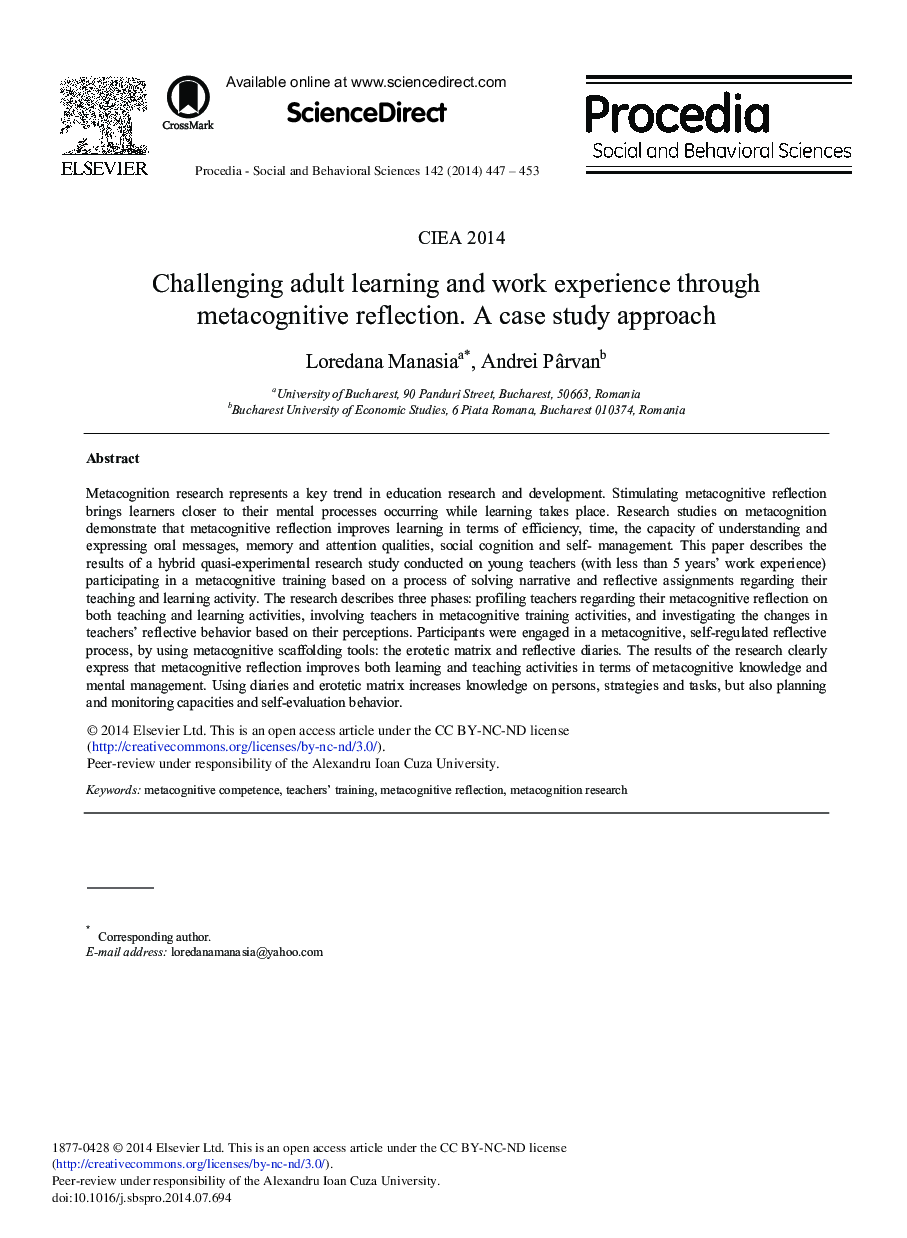| کد مقاله | کد نشریه | سال انتشار | مقاله انگلیسی | نسخه تمام متن |
|---|---|---|---|---|
| 1115669 | 1488417 | 2014 | 7 صفحه PDF | دانلود رایگان |
Metacognition research represents a key trend in education research and development. Stimulating metacognitive reflection brings learners closer to their mental processes occurring while learning takes place. Research studies on metacognition demonstrate that metacognitive reflection improves learning in terms of efficiency, time, the capacity of understanding and expressing oral messages, memory and attention qualities, social cognition and self- management. This paper describes the results of a hybrid quasi-experimental research study conducted on young teachers (with less than 5 years’ work experience) participating in a metacognitive training based on a process of solving narrative and reflective assignments regarding their teaching and learning activity. The research describes three phases: profiling teachers regarding their metacognitive reflection on both teaching and learning activities, involving teachers in metacognitive training activities, and investigating the changes in teachers’ reflective behavior based on their perceptions. Participants were engaged in a metacognitive, self-regulated reflective process, by using metacognitive scaffolding tools: the erotetic matrix and reflective diaries. The results of the research clearly express that metacognitive reflection improves both learning and teaching activities in terms of metacognitive knowledge and mental management. Using diaries and erotetic matrix increases knowledge on persons, strategies and tasks, but also planning and monitoring capacities and self-evaluation behavior.
Journal: Procedia - Social and Behavioral Sciences - Volume 142, 14 August 2014, Pages 447-453
